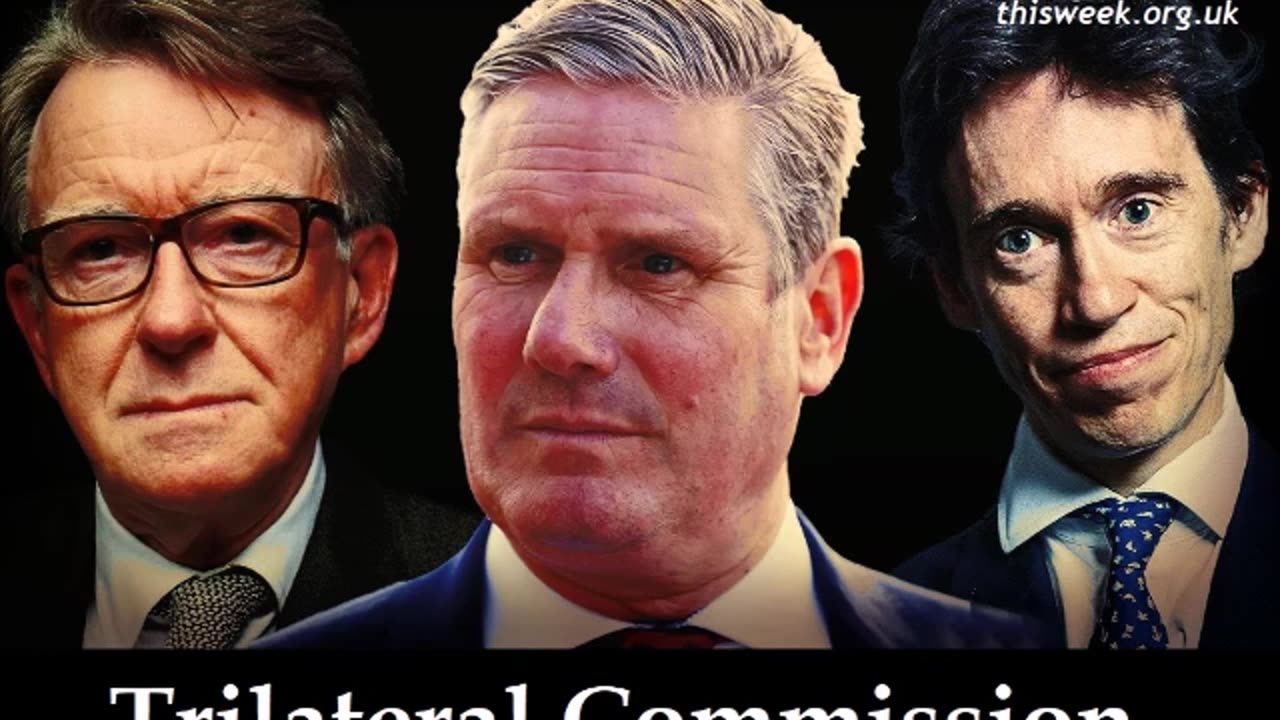Premium Only Content

We must rebuild workplace morale killed by Thatcher, privatisation & weak unions - Crispin Flintoff
Margaret Thatcher, and the man in the shadows
By Tony Gosling | RT | April 16, 2013
As the nickname suggests, she had a fearsome reputation round the world for hitting hard for Britain, but at home it was a different story. In the industrial North most knew several families who lost their livelihood on her watch. Londoners saw ominous shifting sands, homeless youngsters begging on the streets whom her regime had turned it’s back on.
https://alethonews.com/2013/04/16/margaret-thatcher-and-the-man-in-the-shadows/
A month or so ago, I posted about how I have heard a few people in their 70s saying they are looking forward to dying as they find the state of the world so depressing.
I put it down to the way Starmer has sucked all the hope out of us, but there is more to it than that.
Many people have been struggling with depression or low spirits for a considerable time and I think I can trace why this is from personal experience.
I feel more isolated than I have ever felt in my life. My social circle is very small. I don’t tend to make an effort with friends and family.
And I have noticed that other people feel the same from posts I've been reading on here.
I can trace how things changed for me back to 2010 when I was made redundant from my last permanent job....
Michael Hudson: Thatcher’s Legacy of Failed Privatizations
How Monetarism Laid the Groundwork for Privatization
Ostensibly a theory of money and prices, monetarism became an ideology to attack government spending and organized labor. The theory’s guiding idea was that price levels could be determined by controlling the money supply – by the central bank managing the rate at which government deficits were monetized. Meanwhile, wage-push inflation could be countered by taking legal steps to break the power of unions to strike and to declare boycotts. The effect was to remove economic planning from the hands of government. The vacuum would be filled by global investment bankers. Efficient management was to take the form of maximizing stock-market gains, not the promotion of full employment and other non-market social welfare objectives.
Keynes had been a monetary theorist of a different stripe. He saw that money, in the sense of spending power, comprised effectively the entire credit superstructure. Any income-yielding asset could be collateralized as the basis for credit. Indeed, credit – and in effect, purchasing power – can be created simply by companies not paying their bills. These unpaid bills became assets on the books of their suppliers (“receivables” that could be financed through the banking system). In this respect the volume of credit and near-money is virtually synonymous with the economy’s overall volume of debt. This perception forms the basis for post-Keynesian “creditary” or “balance sheet” economics, a more comprehensive alternative to monetarist doctrine. (Gardiner 1993 provides a technical discussion.)
Monetarism reveals its political bias by singling out only public debt as the source of inflation, ignoring the mushrooming private debt. This one-sidedness has proved to be its Achilles Heel. Yet it was precisely this narrow anti-government focus that attracted Mrs. Thatcher and other libertarian politicians to monetarism in the first place.
Monetarism’s appeal is political and rhetorical, not based on sound economic evidence. (Its correlations of money and prices fail to acknowledge the arrow of causality, especially at the foreign-exchange margin. See Hudson 1992 for a detailed critique.) Controlling the public debt by reining in government can represent only part of a comprehensive system of monetary management, for in practice the money supply – the means of settling obligations – turns out to be nothing less than the overall credit supply. This in turn includes the economy’s “near-money” in the form of all marketable assets and debt instruments. Attempts to manage money, narrowly defined as government debt, are thus in vain.
The real reason why monetarists seek to control the Treasury or Finance Department and the central bank in every country is to achieve their political ends. From their position in these financial control centers, they put the brakes on government operations across the board, or promote other pet policies. Monetarist doctrine provides the ideological wrapping to present this control as a form of idealism and individualism....
-
 LIVE
LIVE
SpartakusLIVE
1 hour agoNEW Black Ops 7 BETA || WZ too! And PUBG later?
185 watching -
 LIVE
LIVE
MattMorseTV
3 hours ago $2.46 earned🔴CHILLING + TALKING🔴
400 watching -
 1:00:02
1:00:02
BonginoReport
3 hours agoTerror Strikes Manchester Again - Nightly Scroll w/ Hayley Caronia (Ep.147)
30.1K31 -
 LIVE
LIVE
Reidboyy
7 hours agoBIRTHDAY BETA STREAM!!!
34 watching -
 2:05:44
2:05:44
Redacted News
4 hours agoHIGH ALERT! US AND ISRAEL SPEEDING TOWARD WAR WITH IRAN, INFLUENCERS BEING PAID $7,000 PER POST
123K52 -
 LIVE
LIVE
Mally_Mouse
4 days ago🎮 Throwback Thursday! Let's Play: Kingdom Hearts 1 pt. 1
54 watching -
 LIVE
LIVE
Quite Frankly
7 hours agoHidden History, The Culture War, Games We Play | Nerdrotic 10/2/25
565 watching -
 LIVE
LIVE
TwinGatz
8 hours ago🔴LIVE - IL DUCE IS BACK! SO ARE WE! | Black Ops 7 Beta | EARLY ACCESS
12 watching -
 LIVE
LIVE
blackfox87
8 hours ago🟢 SUBATHON DAY 1 | BO7 BETA | Premium Creator | #DisabledVeteran
46 watching -
 30:00
30:00
BEK TV
1 day agoGUT HEALTH AND THE POWER OF KIMCHI WITH KIM BRIGHT ON TRENT ON THE LOOS
16.3K1
